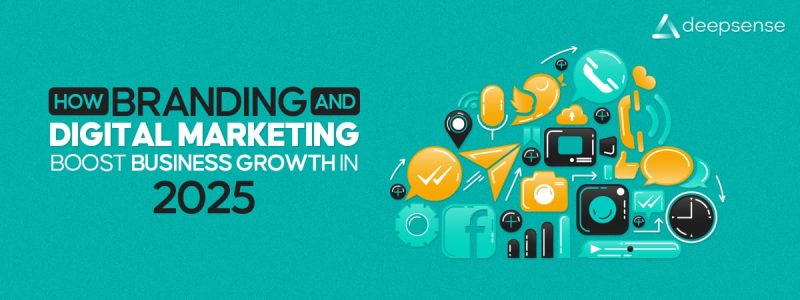The world of industrial business might bring to mind the hum of machinery, the strength of steel, and the precision of engineering. Often, it doesn’t immediately conjure images of sleek websites or engaging social media growth . Yet, there’s a critical shift happening: your industrial buyers are increasingly active online, relying on digital channels for their research and purchasing decisions. Embracing digital transformation for industrial brands is no longer a luxury but a fundamental necessity for sustained growth and relevance.
So, what exactly is industrial digital marketing? Simply put, it’s a specialized form of B2B (business-to-business) digital marketing designed to promote products and services within the industrial sector to other businesses. It leverages online platforms and technologies to connect with a target audience of business buyers and key decision-makers. The goal is clear: enhance online presence, attract a focused audience, generate quality leads, build brand awareness, and ultimately drive revenue.
Why does this matter so much? If your brand isn’t visible where your customers are looking, you effectively cease to exist in their purchasing journey.
The “Good Old Days” Are Gone (And They’re Not Coming Back)
For decades, industrial companies often thrived on traditional methods: trade shows, word-of-mouth referrals, printed catalogs, and direct sales calls. These strategies built strong relationships and served a purpose. However, the landscape has drastically changed. The widespread adoption of smartphones and the internet has fundamentally altered how B2B buyers conduct their research.
Today’s industrial buyer, regardless of their experience level, begins their purchasing journey online. Studies show that between 70% and 90% of the B2B buying journey happens digitally before a potential customer even contacts a sales representative. This profound shift underscores the impact of digital presence on B2B brands. Companies that fail to adapt risk becoming obsolete in a rapidly evolving market.
The Digital Abyss: What Happens When Industrial Brands Tune Out
Ignoring the call for B2B digital transformation comes with significant consequences that can undermine an industrial brand’s competitive edge and long-term viability. Here are the critical risks of ignoring digital marketing:
Poof! You’re Invisible
- If potential customers can’t find your products or services when they search online, your brand effectively becomes invisible. With 84% of people searching for manufacturing services starting their journey online, missing out on search engine visibility means missed opportunities to capture inbound demand, sending it directly to digitally savvy competitors.
Becoming the Blockbuster of Manufacturing
- History is replete with examples of companies that failed to adapt to technological shifts – Blockbuster, Kodak, and Nokia are cautionary tales. Industrial brands clinging solely to traditional methods risk a similar fate. Competitors are rapidly embracing digital strategy for manufacturing companies, gaining market share and leaving traditionalists behind.
Credibility Crisis
- A weak or non-existent online presence can make your brand appear outdated, unreliable, or even untrustworthy in today’s digital-first world. Over 60% of buyers report feeling disconnected from companies lacking a strong digital footprint, directly impacting brand perception and customer loyalty.
Money Down the Drain (Ironically)
- Traditional marketing methods can be significantly more expensive and less efficient than a well-executed digital strategy. Digital marketing generally costs 62% less than traditional methods while generating three times more leads. Sticking to outdated approaches often means higher costs per impression and lower-quality leads.
“Our Products Are Too Complex for Digital” – The Myth
- This common refrain is a significant hurdle. While industrial products are often technically intricate, this complexity is precisely why digital content is crucial.
- Whitepapers
- Detailed videos
- Case studies
- Technical articles
The Internal Tug-of-War
- Many industrial companies were not founded with digital capabilities in mind. This often translates to small or non-existent marketing teams lacking specialized digital expertise in areas like SEO, content strategy, and analytics. Resistance to change within an organization can further delay essential digital adoption, costing the business valuable opportunities.
Lost in the Long Sales Cycle
- Industrial sales cycles are typically long and involve multiple decision-makers. Without a robust digital nurturing strategy, which includes personalized email campaigns and targeted content delivery at each stage, prospects can easily disengage and drop out of the sales pipeline.
The Future is Now: How to Avoid the Digital Dark Side
To ensure industrial business growth online and maintain a competitive edge, industrial brands must proactively engage with digital strategies.
Embrace the “Digital-First” Mentality
- Recognize that a strong online branding for industrial companies is not merely an addition but the core of modern marketing. Prioritize digital channels and customer experiences.
Harness the Power of AI (Yes, Even for Heavy Industry!)
- Artificial Intelligence is no longer futuristic; it’s a present-day marketing tool. AI can revolutionize:
- Content creation (e.g., generating blog outlines, product descriptions)
- Predictive analytics for lead identification
- Automated email campaigns
- Personalized customer experiences
Content is STILL King (and Video is the Crown Prince)
- High-value, educational content is paramount for establishing thought leadership and engaging technical audiences.
- Whitepapers and eBooks: Offer in-depth solutions to industry challenges.
- Webinars: Provide interactive learning experiences.
- Blog Posts: Address common pain points and offer valuable insights.
- Video Marketing: Product demonstrations, 360° factory tours, and tutorials can captivate and inform potential buyers more effectively than text alone.
Get Smart with Your Tools
- Invest in modern marketing technologies:
- Marketing Automation: Streamline repetitive tasks and nurture leads efficiently.
- CRM Systems: Manage customer relationships and track interactions through long sales cycles.
- Data Analytics: Leverage insights into customer behavior and campaign performance to make data-driven decisions and optimize ROI.
Build a Digital Fortress (Your Website is Key)
- A professional, user-friendly, and mobile-responsive website is the cornerstone of your digital presence. It should feature:
- Clear navigation
- Detailed product information and technical datasheets
- Engaging visuals (images, videos, 3D renderings)
- Clear calls-to-action
- Robust Search Engine Optimization (SEO) is non-negotiable to ensure potential customers can easily find your digital hub.
Learn from the Leaders
- Successful industrial brands like GE, Honeywell, John Deere, and Siemens are already demonstrating effective online branding for industrial companies. They use creative digital content, targeted social media engagement, and immersive experiences (like 3D product visualizations) to make complex products approachable and engaging for their audience.
Don’t Get Left Behind!
The message for industrial brands is unequivocal: why digital marketing matters for industries is a question that has been definitively answered. It’s not just about flashy ads; it’s about connecting with modern buyers, building trust and credibility, driving sustainable growth, and maintaining a vital competitive advantage. Embrace digital transformation for industrial brands today, or risk becoming a cautionary tale of the past. The choice is yours: thrive in the digital age or fade into obscurity.
FAQ
1.What are the main risks industrial brands face when they ignore digital transformation?
Ignoring digital transformation makes industrial brands less competitive and harder to find online. It slows operations, increases costs, and limits access to new markets. Competitors adopting digital tools move faster and gain customer trust easily.
2.How does a weak digital presence affect customer trust and engagement?
A poor digital presence creates doubt about a company’s credibility and professionalism. Customers expect brands to be active online, and when they aren’t, trust and engagement decline sharply. Over time, this can push clients toward more digitally visible competitors.
3.Why is data-driven decision-making critical for industrial brands in the digital age?
Data helps industrial brands make accurate, informed decisions and stay agile in changing markets. Without analytics, companies rely on guesswork and lose insights into performance, demand, and customer needs. This limits growth and weakens operational control.
4.What financial consequences can arise from avoiding digital marketing and automation?
Avoiding digital marketing reduces brand visibility and potential leads. Without automation, businesses face higher costs, slower workflows, and increased errors. Over time, this erodes profitability and competitiveness in the market
5.How can industrial brands mitigate risks and embrace digital transformation effectively?
Brands should start with a digital audit, upgrade their tools, and invest in employee training. Building an active digital presence through SEO, social media, and automation enhances efficiency and trust. Gradual integration ensures long-term success











